The reason I love using a Mac is its ability to store over 256GB of data, but here I am struggling to open a few apps. It is true that Mac slows down over time, as various apps eat up a big chunk of the Mac’s memory, thus making everything sluggish. So, I found the best solutions to fix why is my Mac so slow which I will be sharing with you in this guide.
After resolving these issues, I'll introduce you to a PDF management tool, UPDF, for managing my PDFs more efficiently. So, start reviewing this guide and let’s bring your Mac back up to speed.
Windows • macOS • iOS • Android 100% secure
Part 1. Troubleshooting Guide on Mac So Slow
First off, the reasons why is my Mac computer so slow could be due to too many background apps, outdated macOS, or incompatibility. Therefore, to fix this, I have shared possible solutions that I have personally tried to speed up my Mac.
1. Make Disk Space Available
The first thing I checked was my Mac’s storage, as too much storage prevents it from having enough room to work. So, I deleted some old, unnecessary files, and it significantly improved performance. You can try the following instructions and resolve the "why is my Mac so laggy” issue:
Step 1. Press the “Apple” icon at the top and choose the “About This Mac” option from the drop-down menu.
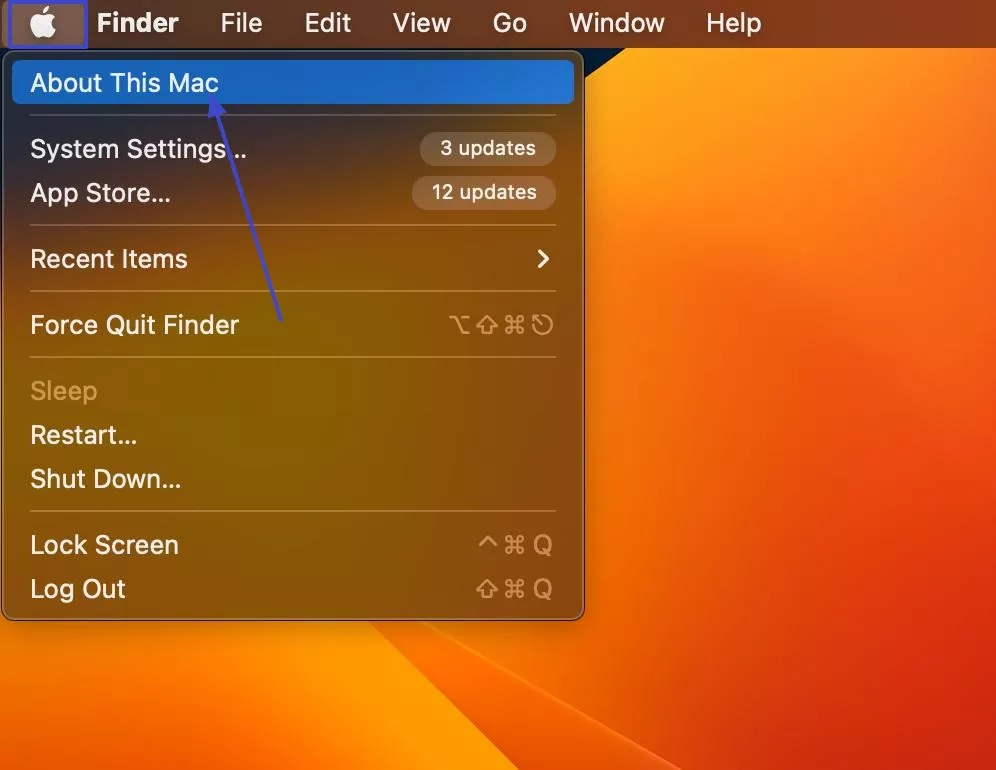
Step 2. This will open a new window where you have to press the “More Info” button.
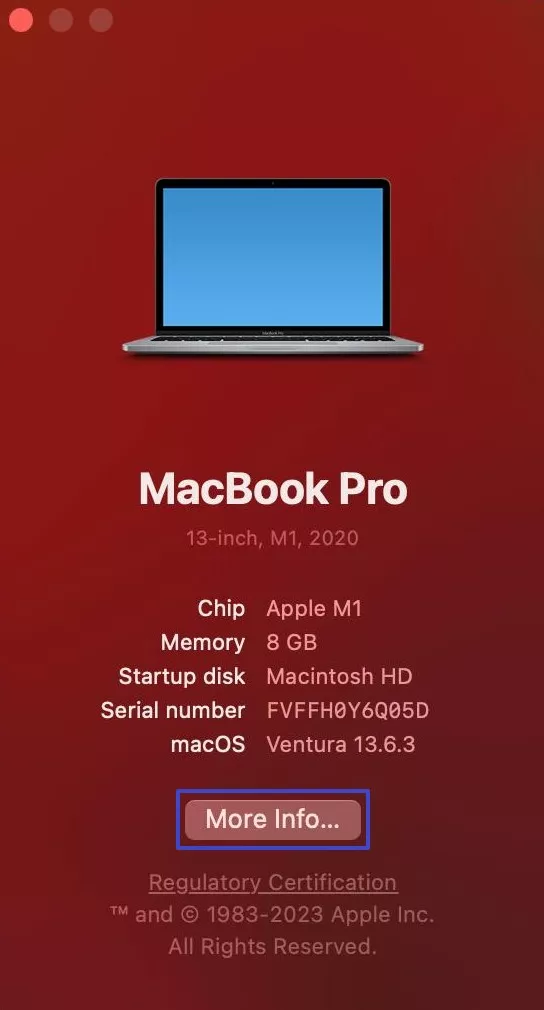
Step 3. Now, scroll down to the “Storage” section and pick the “Storage Settings” option.
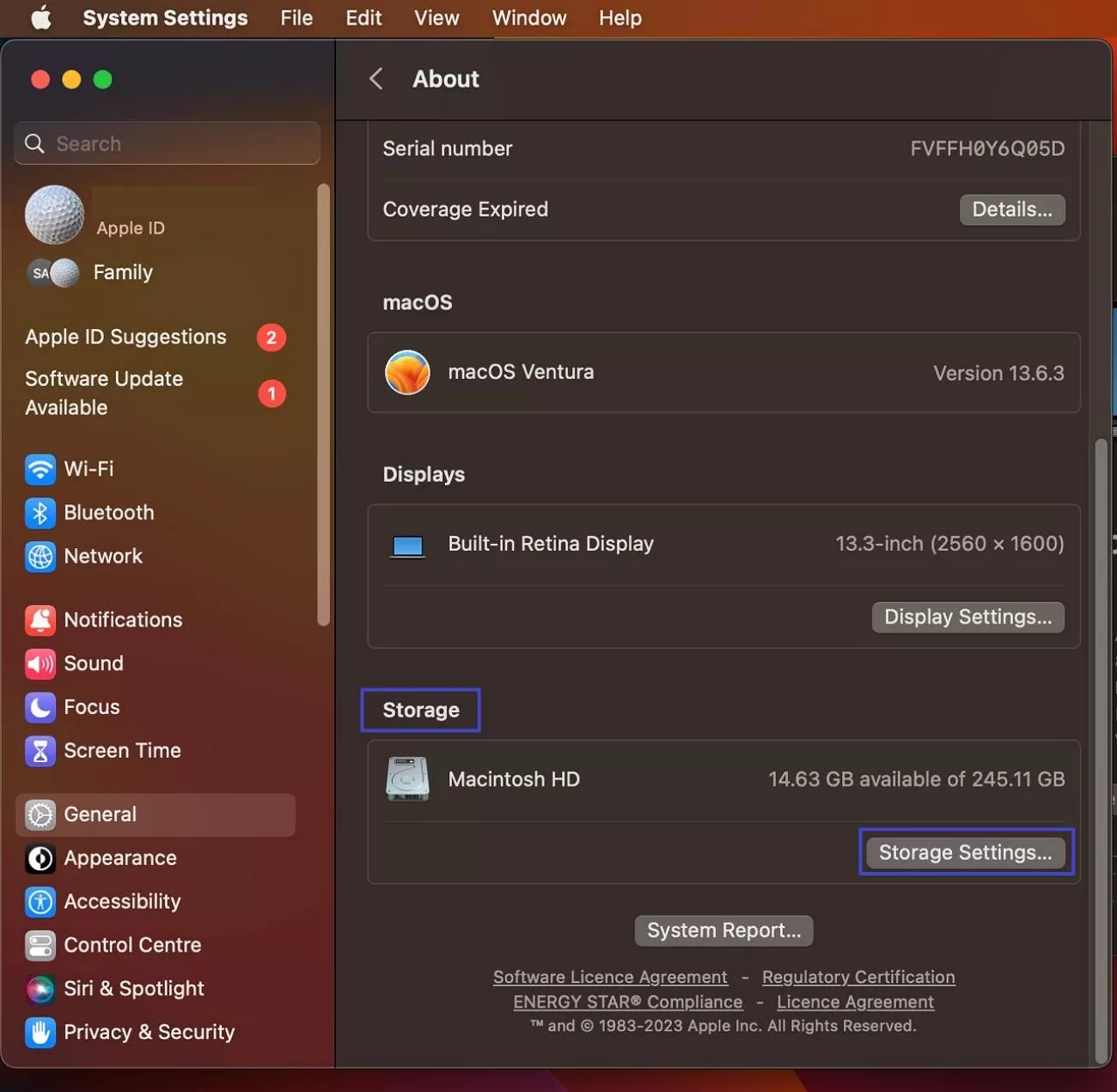
Step 4. Your Mac will analyze and display a breakdown of storage usage. From the given options, you can review the “Store in Cloud” or “Optimize Storage” section to free up space by offloading unused files.
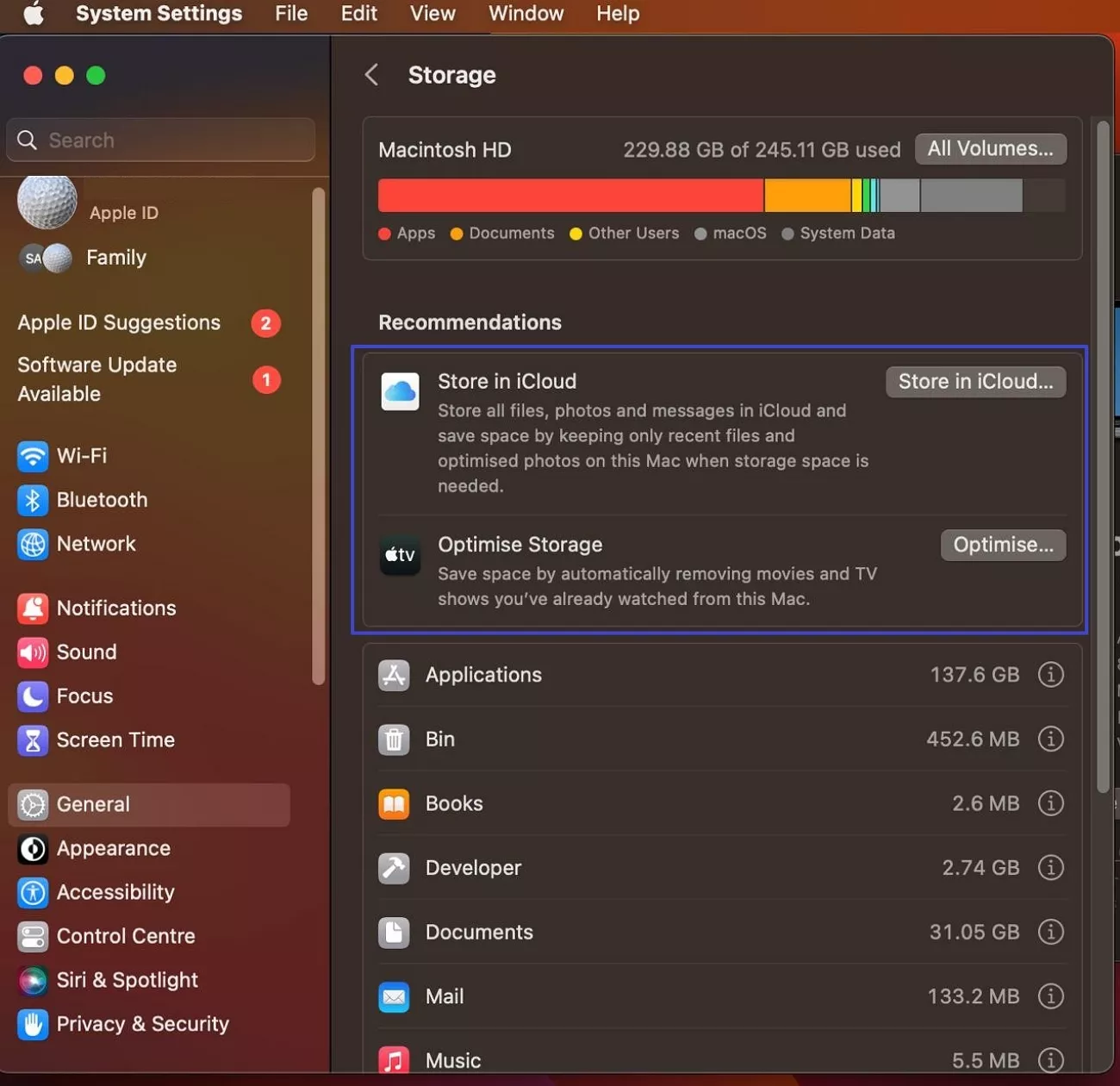
2. Monitor Your Mac’s Activity
Sometimes, I don’t understand which apps are causing the “why is my Mac being so slow” problem, so using the Activity Monitor helps. It also assists me in knowing which applications are consuming more memory or CPU to close in order to have improved performance. I’ve given the instructions in the following to understand how to access them:
Step 1. From the top Mac toolbar, click “Go,” and select the “Utilities” option to access the “Activity Monitor” app.
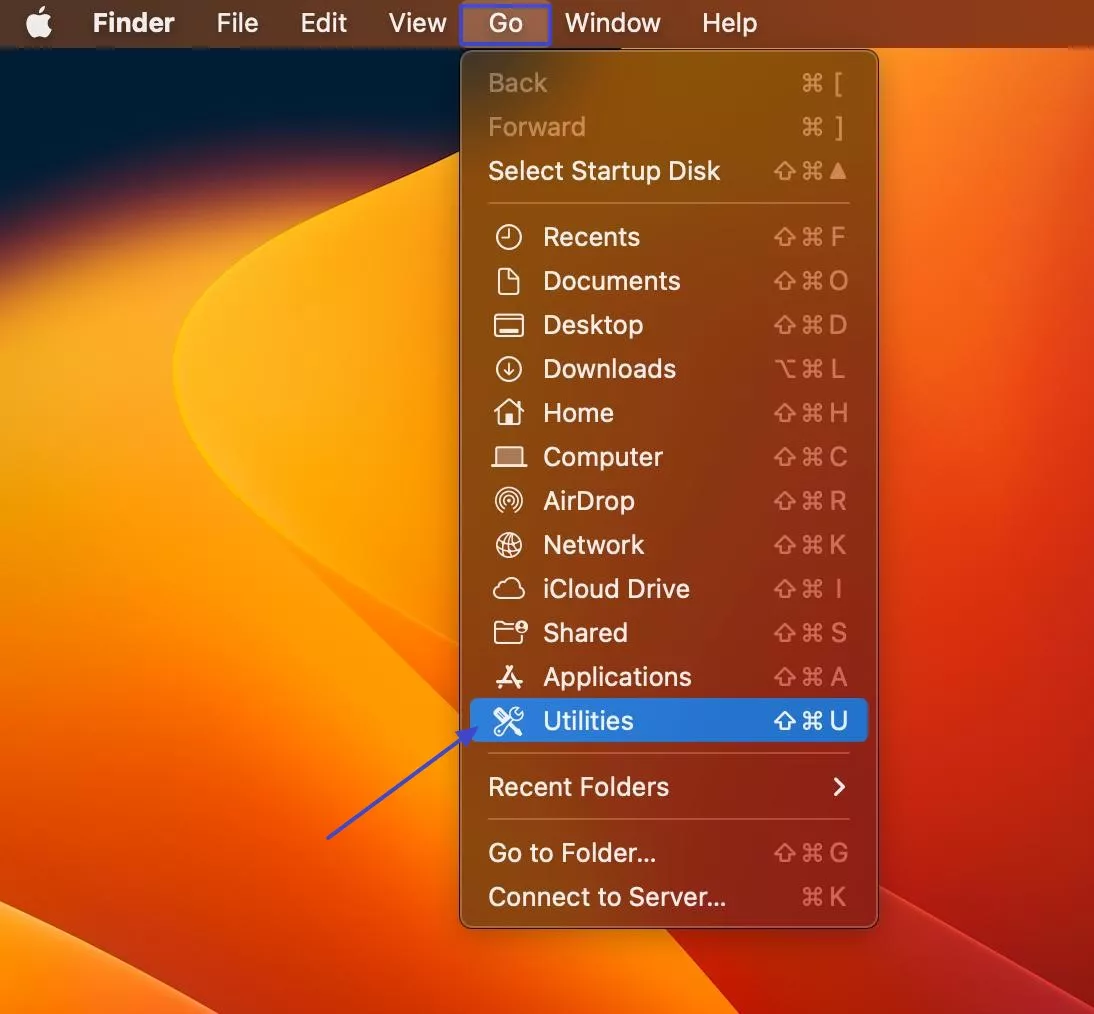
Step 2. After that, click the activity tab of various apps to see how much CPU, Memory, and storage they are using. Next, click the most consuming app, and hit the "X" icon to quit it.
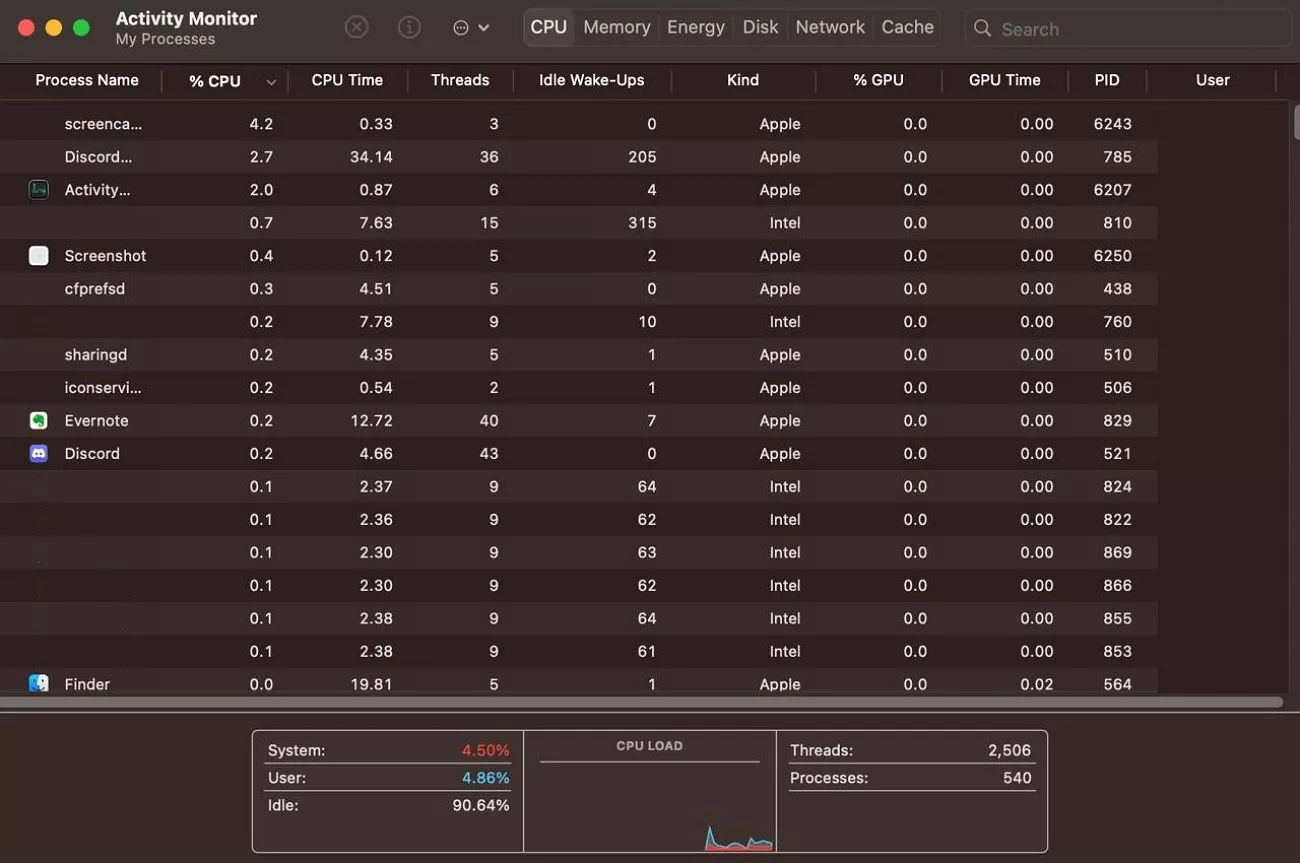
3. Quit Any App That Isn’t Compatible with Mac
Another reason I found out for Mac’s slow processing is that some apps aren’t even compatible with my current version of macOS. These glitchy and slow apps can mess with the system preferences, so I force quit them to ensure a smooth workflow. Whenever the new and updated versions of these apps come out, you can install them to maintain an effective workflow.
4. Quit Any Apps You’re Not Using
At times, I forget how many apps I’m not currently using, which in turn causes the “why is my Mac so slow” issue. Therefore, to ensure they don’t take up memory and RAM, I started closing them, making it responsive and efficient. The process to quit apps is simple, as demonstrated:
Instructions: Open the apps you’re not using, go to the “Apple” icon, and press the “Force Quit” option to shut down that unnecessary app.
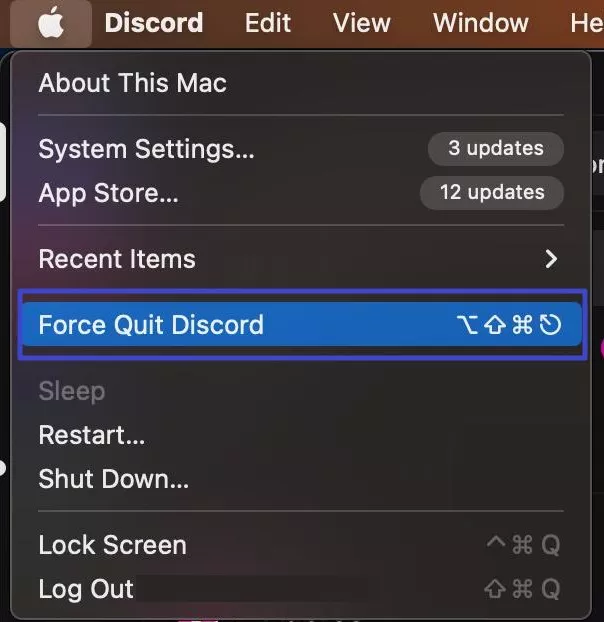
5. Use Disk Utility to Fix Any Disk Issues
Every Mac has a built-in Disk Utility tool, which I used to perform the First Aid action. This checked for any small errors or problems affecting my disk, which helped me fix and improve my Mac's performance. If you want a quick solution to resolve the “why is my Mac so laggy” problem, try these instructions:
Instructions. Access “Disk Utility” from the “Applications” dialogue box and click the “First Aid” option to run a disk diagnosis for any issues.
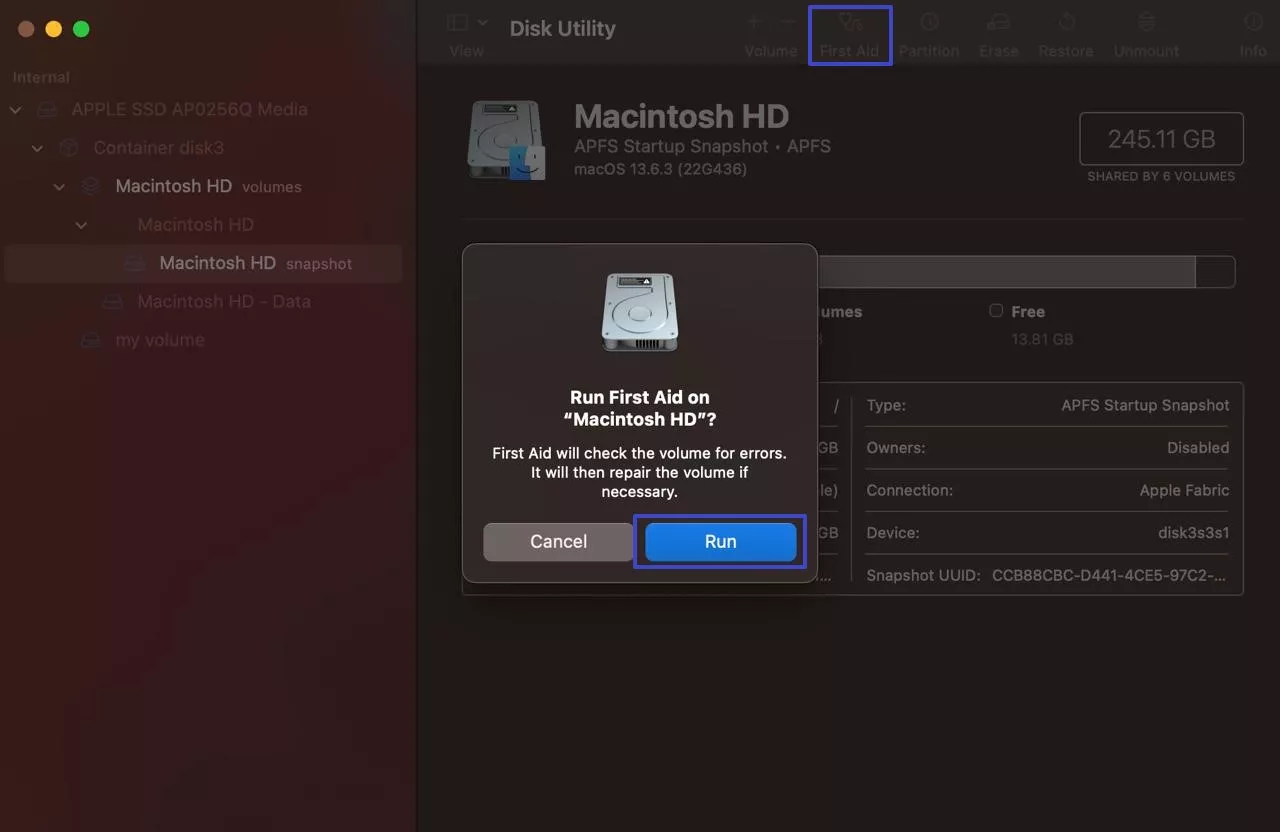
6. Install The Latest macOS Updates to Patch Performance Bugs
I’ve realized that my macOS hasn’t been updated for a while, which might be causing speed issues and more. To ensure these glitches disappear, I updated to the latest version to improve system efficiency. Moreover, you can try this by following these instructions:
Step 1. Within the “Apple” drop-down menu, click the “System Settings” option from the list.
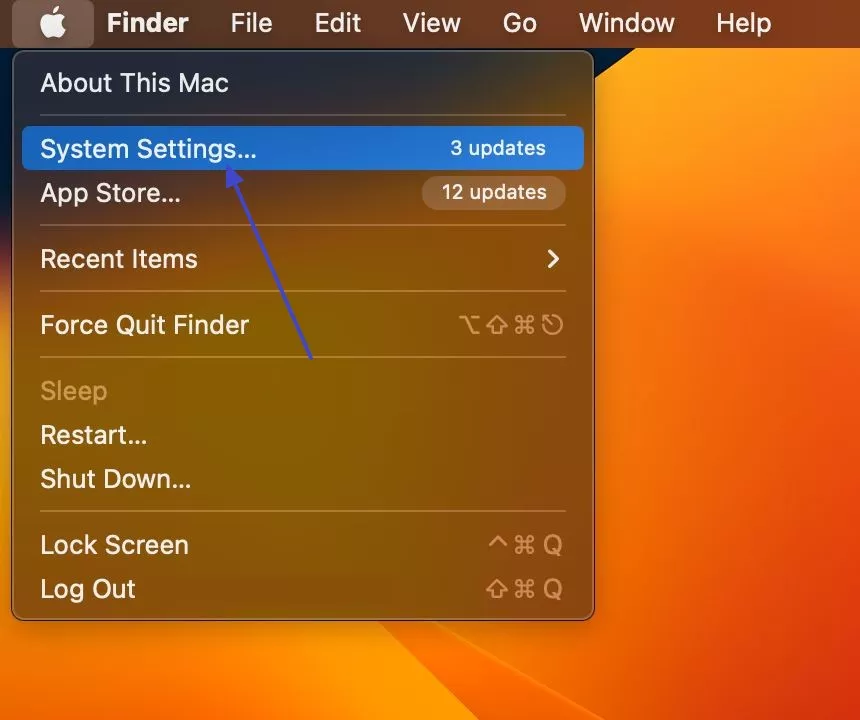
Step 2. Now, on the new interface, head to the “General” tab and pick the “Software Update” option.
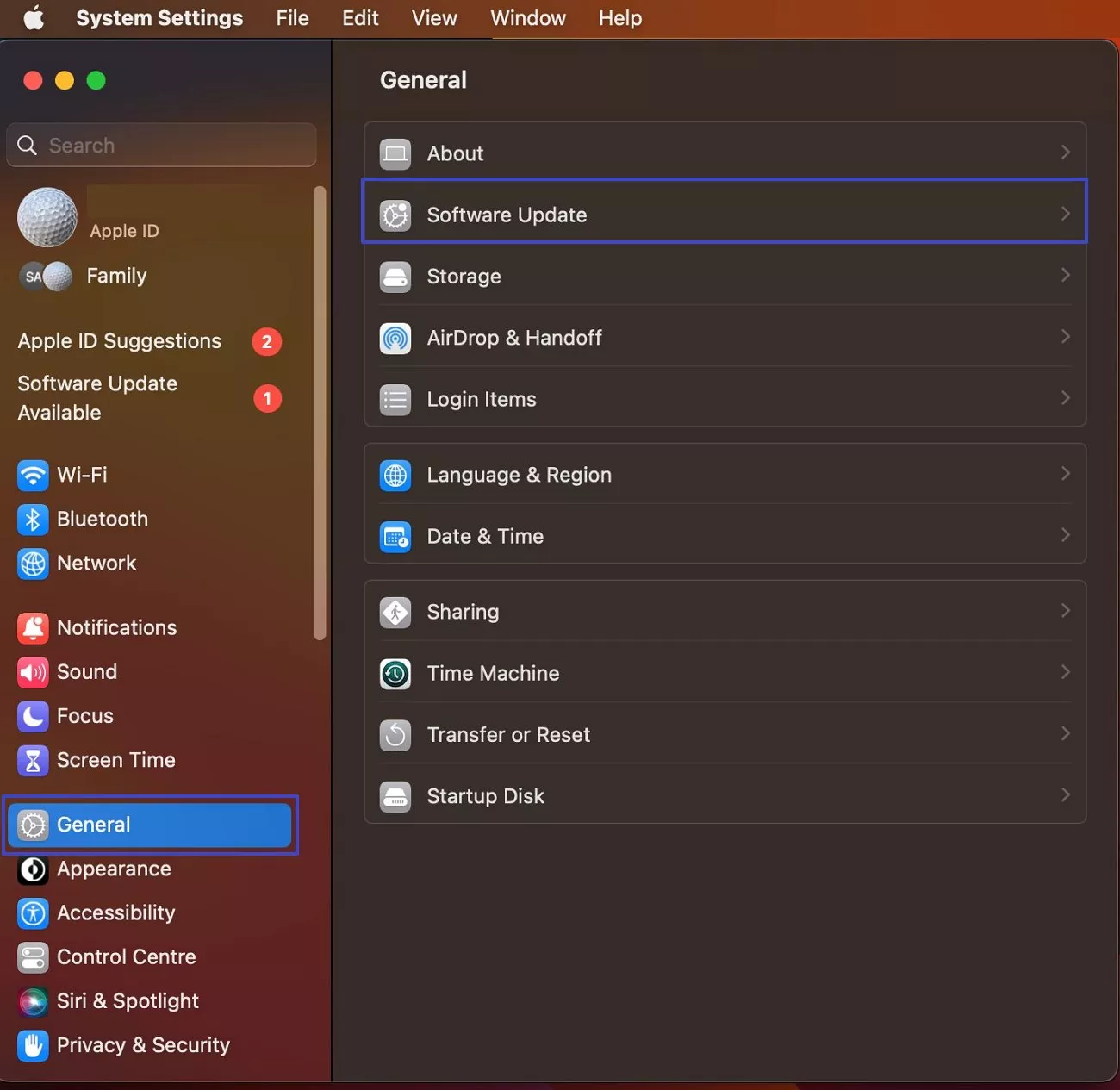
Step 3. In case there is any update available, tap the “Upgrade Now” button to begin downloading and installing the latest macOS version.
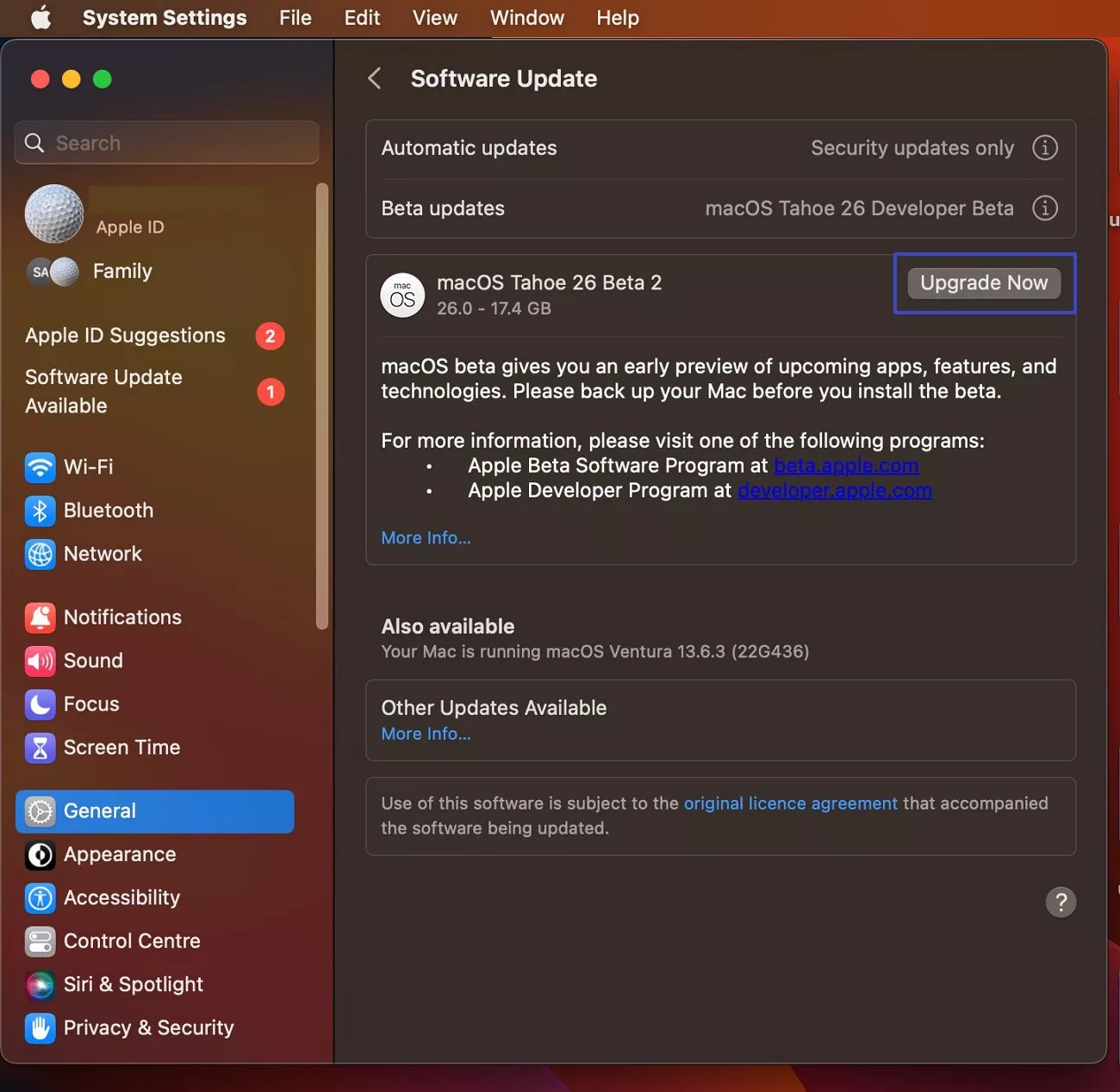
7. Stop or Reduce Onscreen Motion
Mac is built to display fancy animations, but this also slows down my Mac. That is why reducing the motion can help fix the why is my Mac so slow issue, as it replaces them with simpler ones. For quicker and smoother flow, try the following instructions:
Step 1. Get access to the “Accessibility” section from “System Settings,” and open the “Display” tab.
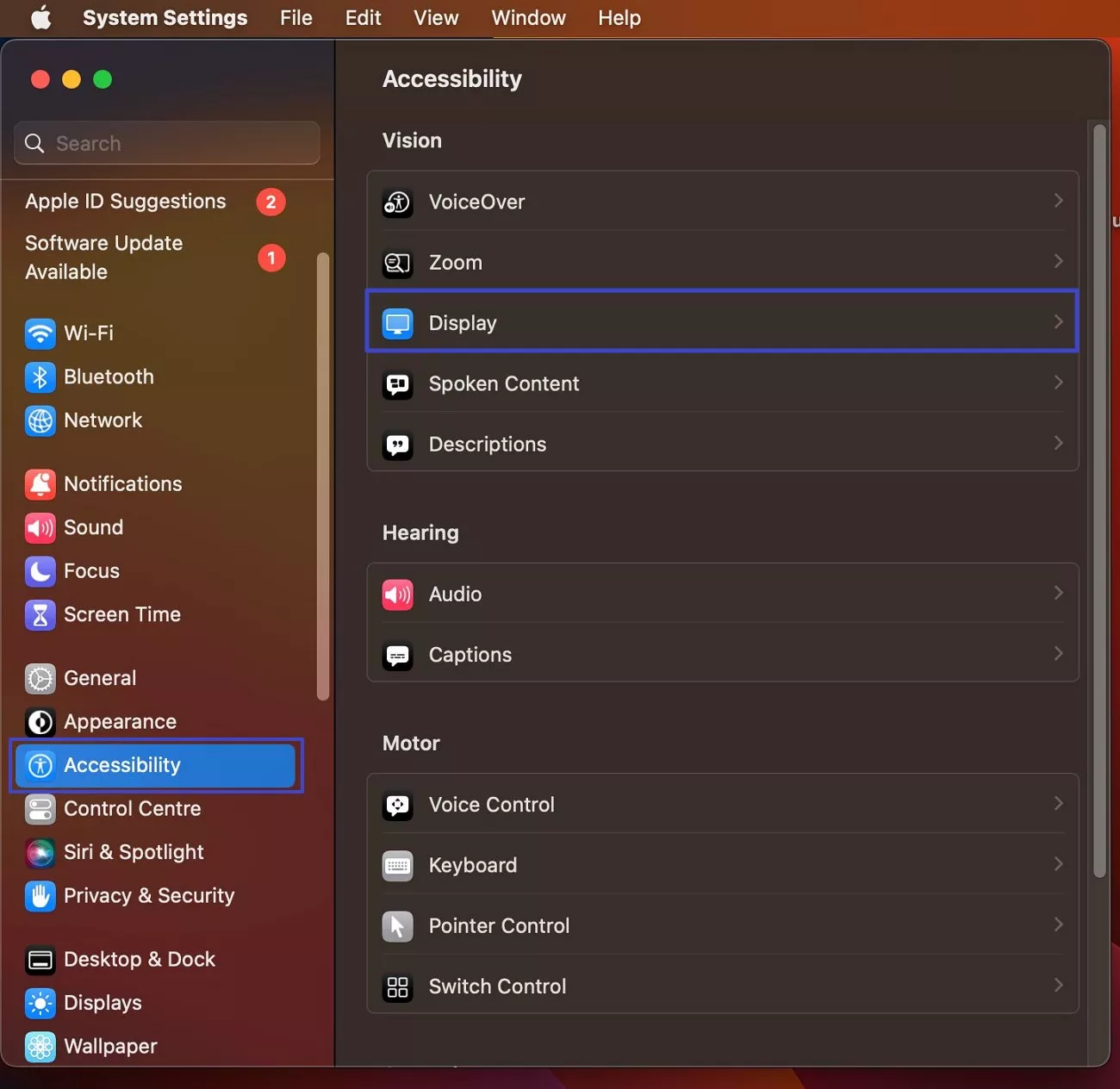
Step 2. Now, go to the “Display” tab, and enable the “Reduce Motion” toggle option.
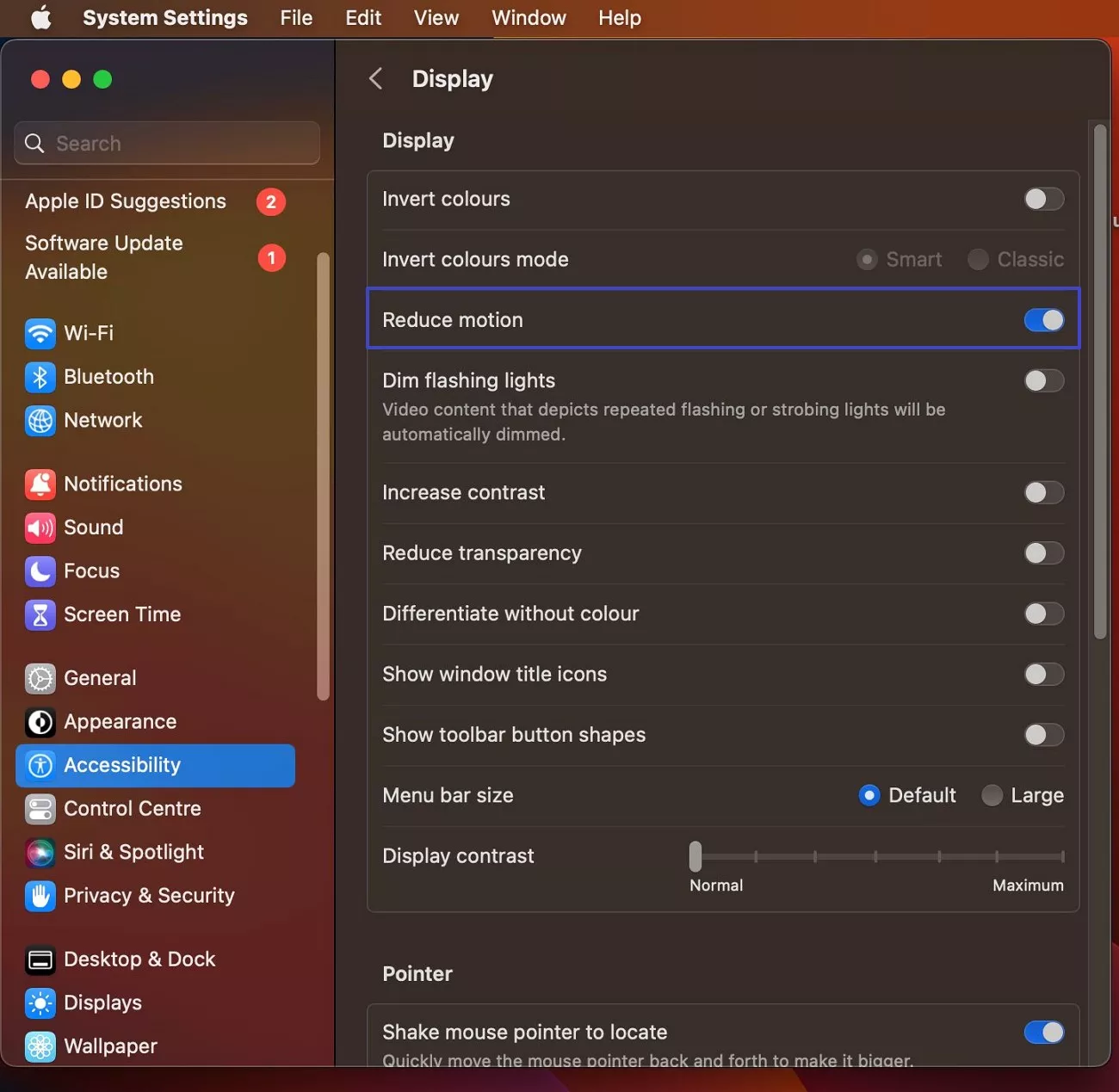
Part 2. Stay Productive During Fixes with UPDF
The things we've discussed have a direct influence on the speed of a MacBook. However, as discussed above, installed software that is large and consumes significant memory can be a reason for “why is my Mac so laggy.” Having the perfect software with minimal size and memory allocation is a dream come true. This is what UPDF has promised, ensuring that its presence won’t influence the Mac’s performance.
Windows • macOS • iOS • Android 100% secure
With such minimal space coverage, it got easier for me to maintain my files and edit PDFs. Not only this, UPDF offers distinctive PDF editing features, which exempts the need for specialized PDF tools. This is another positive note from UPDF in improving Mac's performance. For a better idea of how UPDF makes my PDF editing experience professional and fulfilling, have a look at some of the features below:
Key Features
- PDF Editing: I can edit text, images, and highlight important content without slowing down the system. While this service gave me an experience similar to a Word processing software, I was able to make significant structural and textual changes without going for other options.
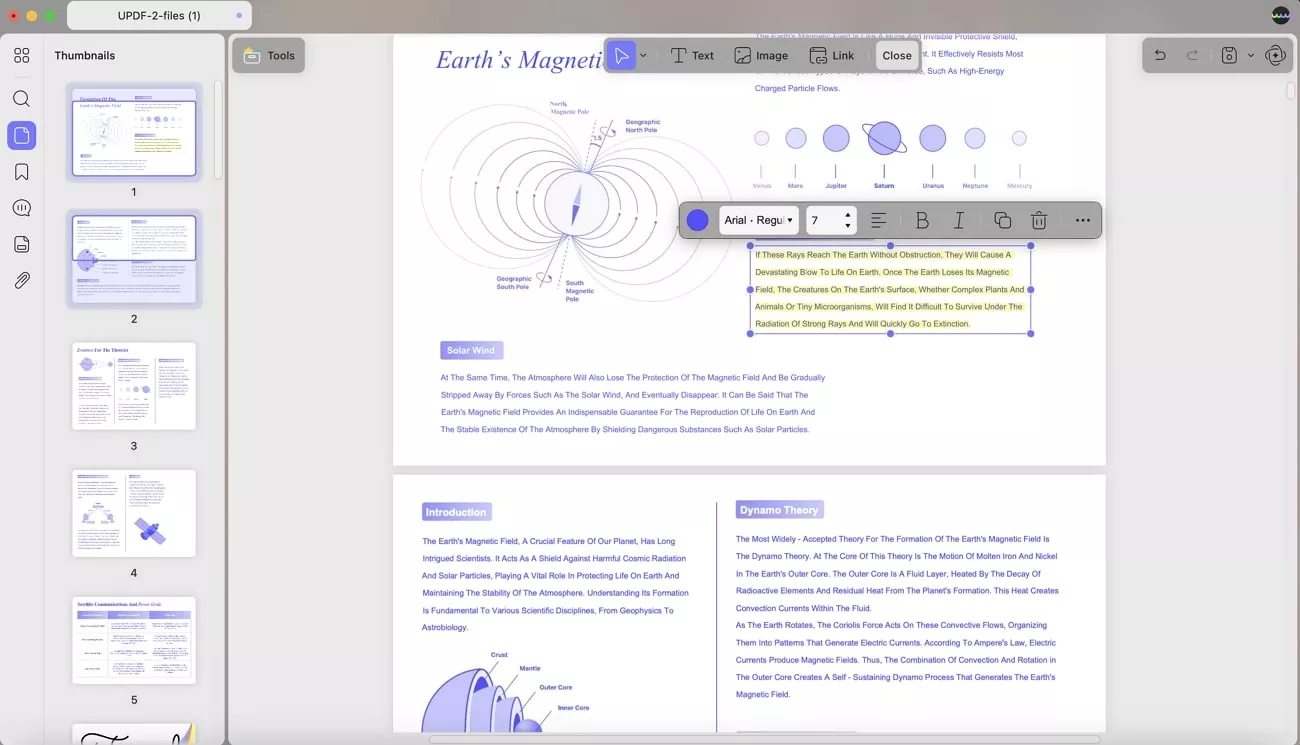
- Store PDFs: UPDF Cloud storage provides me with up to 102GB of space, making it easier for me to store large documents and clear disk space. Instead of piling up large PDFs across my device’s storage space, I was actually able to save them with this cloud storage service. This had a huge impact on my complaint of "why is my Mac computer so slow?"
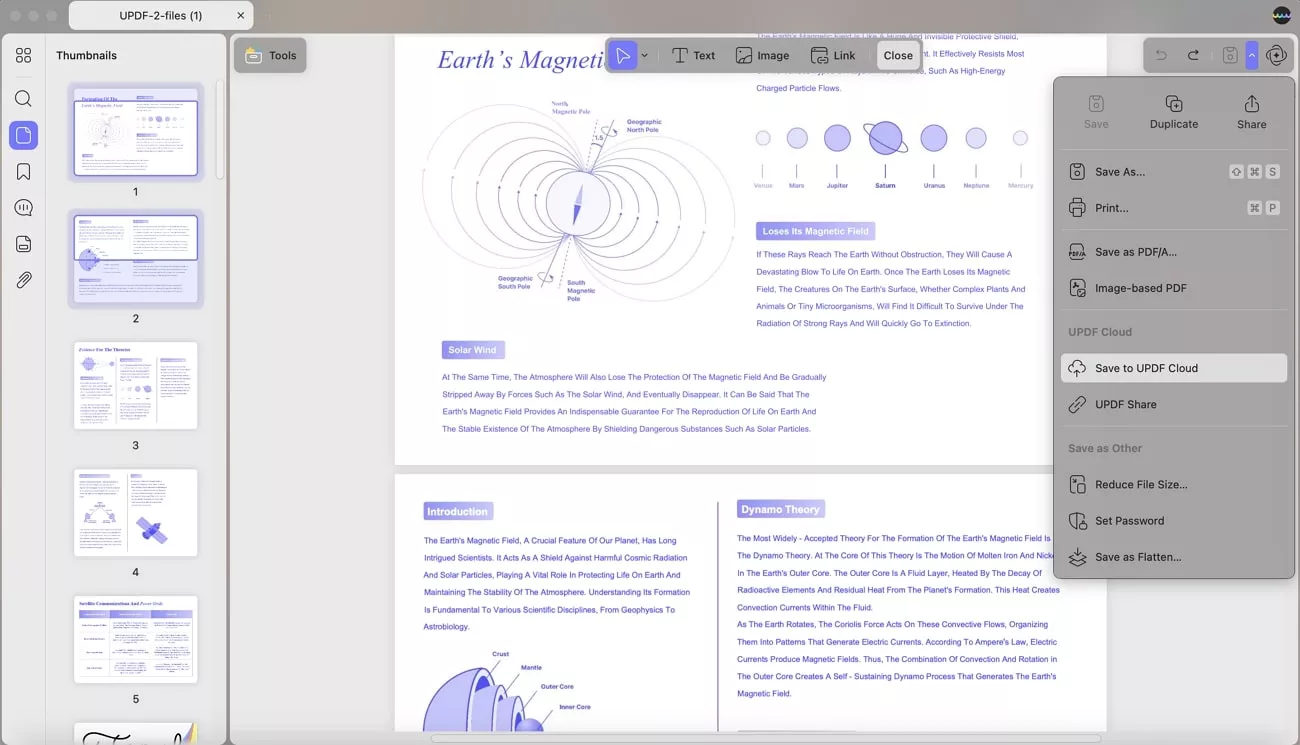

- Sync Across Devices: With its multi-device syncing, I can stay productive on Mac and iOS, even when my Mac is performing smoothly. I was not bound to take my Mac everywhere when I had UPDF with me on my iPhone, saving my device from rugged usage.
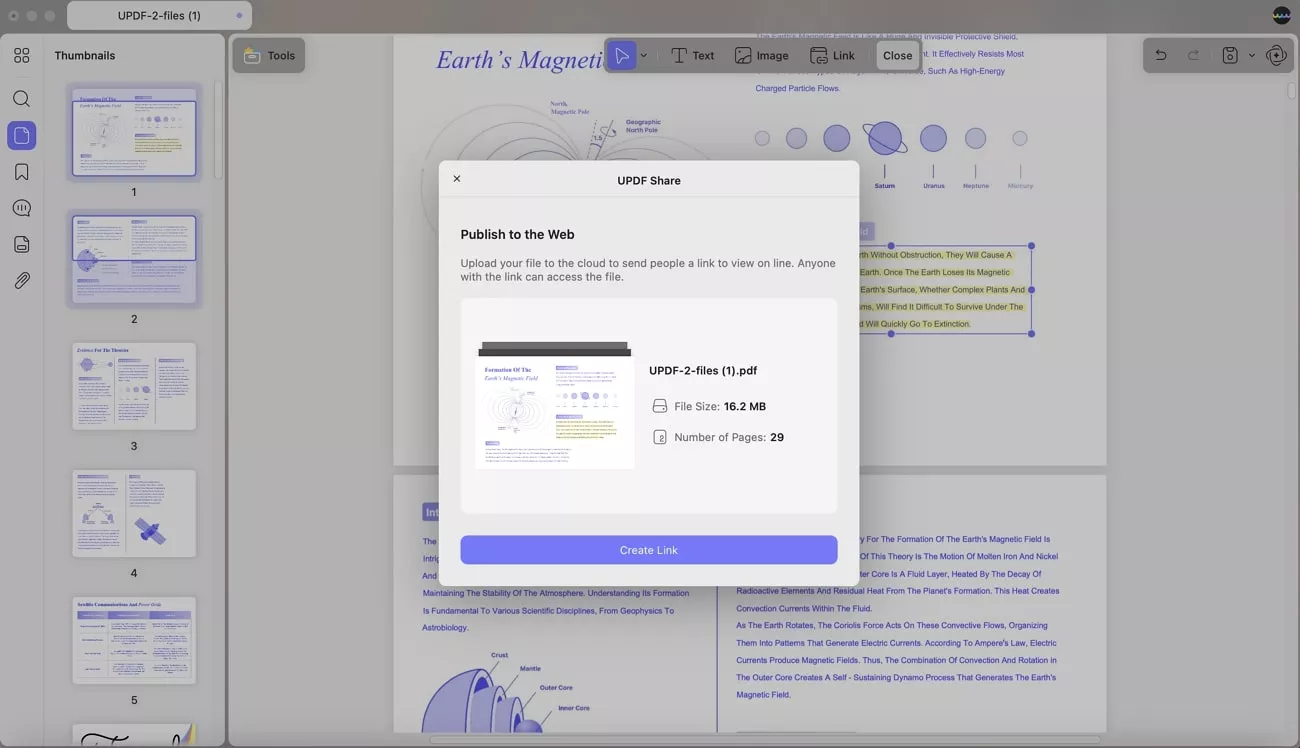
- File Management: This tool allows me to combine multiple PDFs into one with complete editing and personalization abilities. With multiple files taking up extensive system space, UPDF makes it convenient to merge multiple PDFs together into a single file with its batch-merging feature.
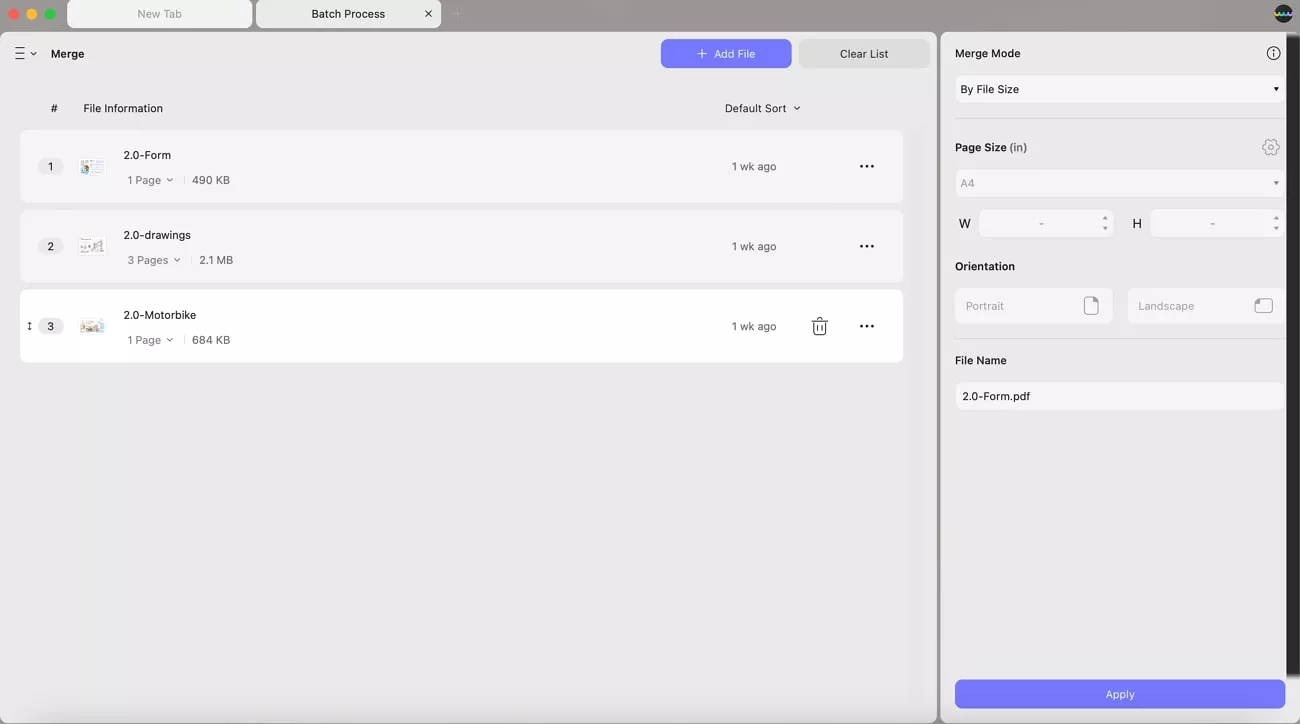
With the PDF files merged together, it does not end here in UPDF. I was then able to save these files across UPDF Cloud, which allowed me to remove all such memory-intensive PDFs from my Mac and protect it from lagging.
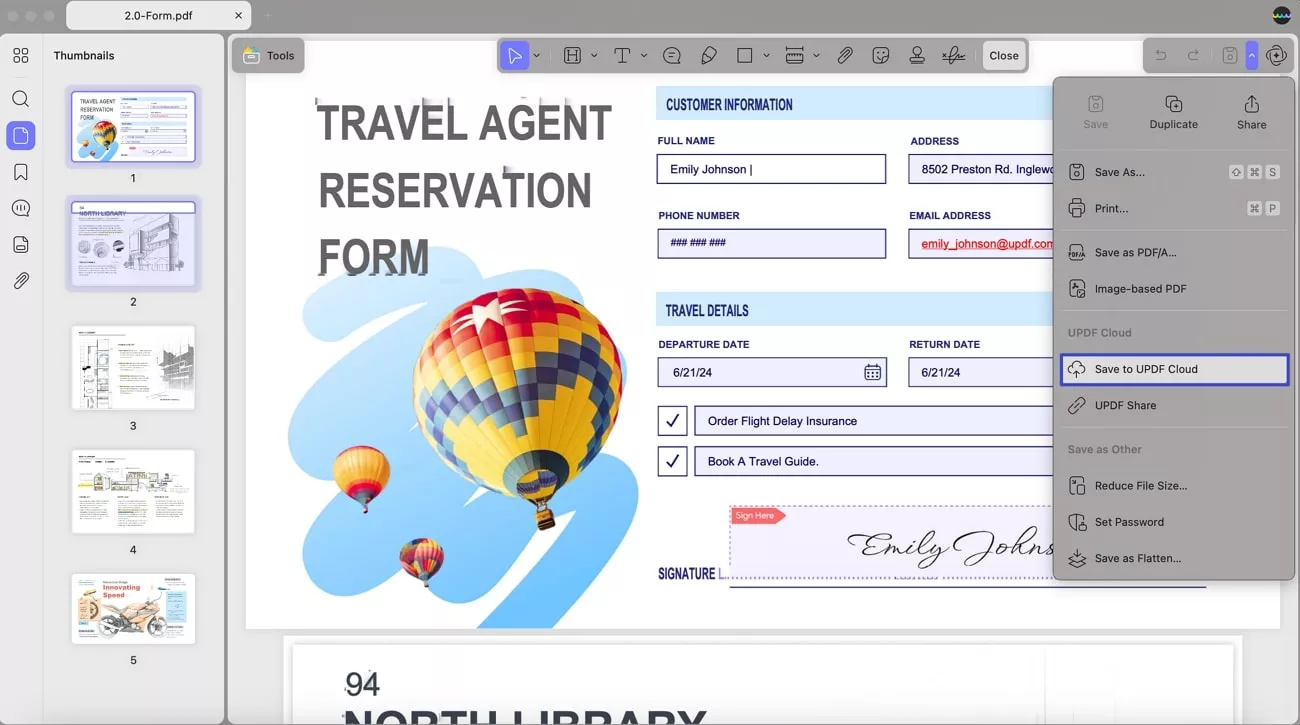
If it comes to accessing these files, I can easily access them through the "Cloud" option of UPDF.
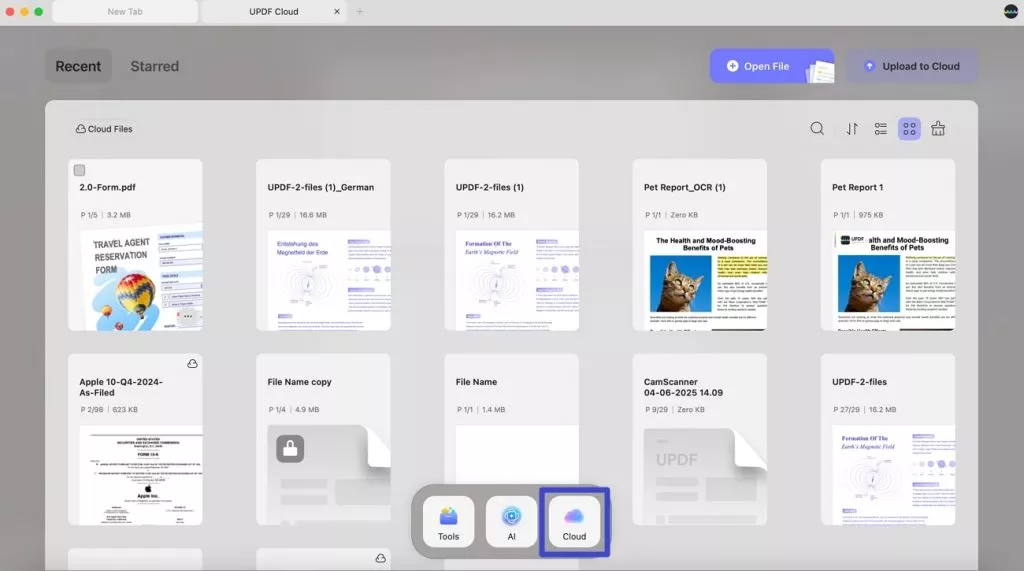
Upon opening the PDFs, I can always look ahead to extract specific PDFs from the main PDF within the “Organize PDF” section according to requirements.
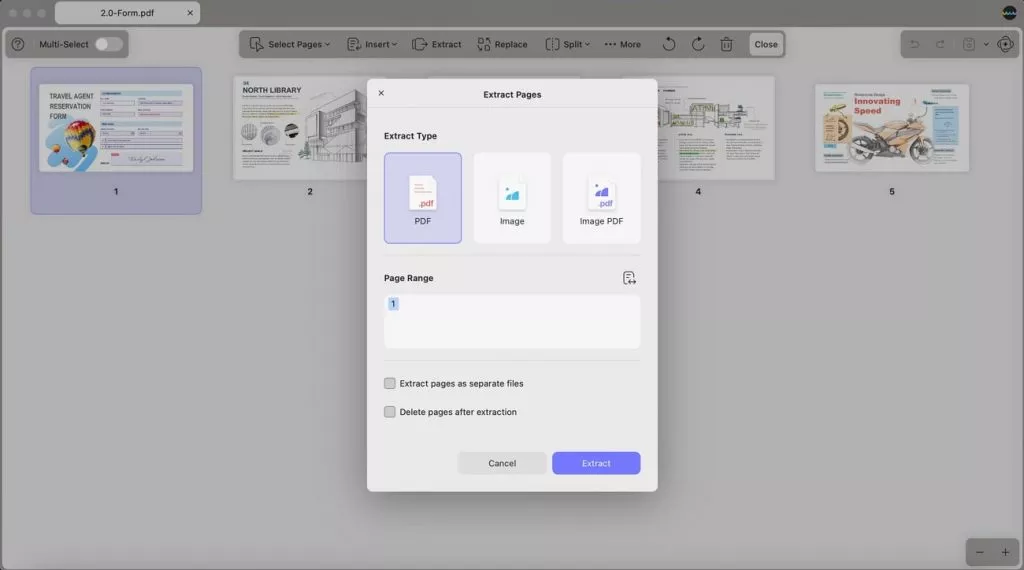
UPDF also offers another impressive feature of creating PDFs automatically through its service. I was amazed to find that I need to only drag and drop pages from the thumbnail bar of UPDF on my Mac’s desktop to create new PDFs.
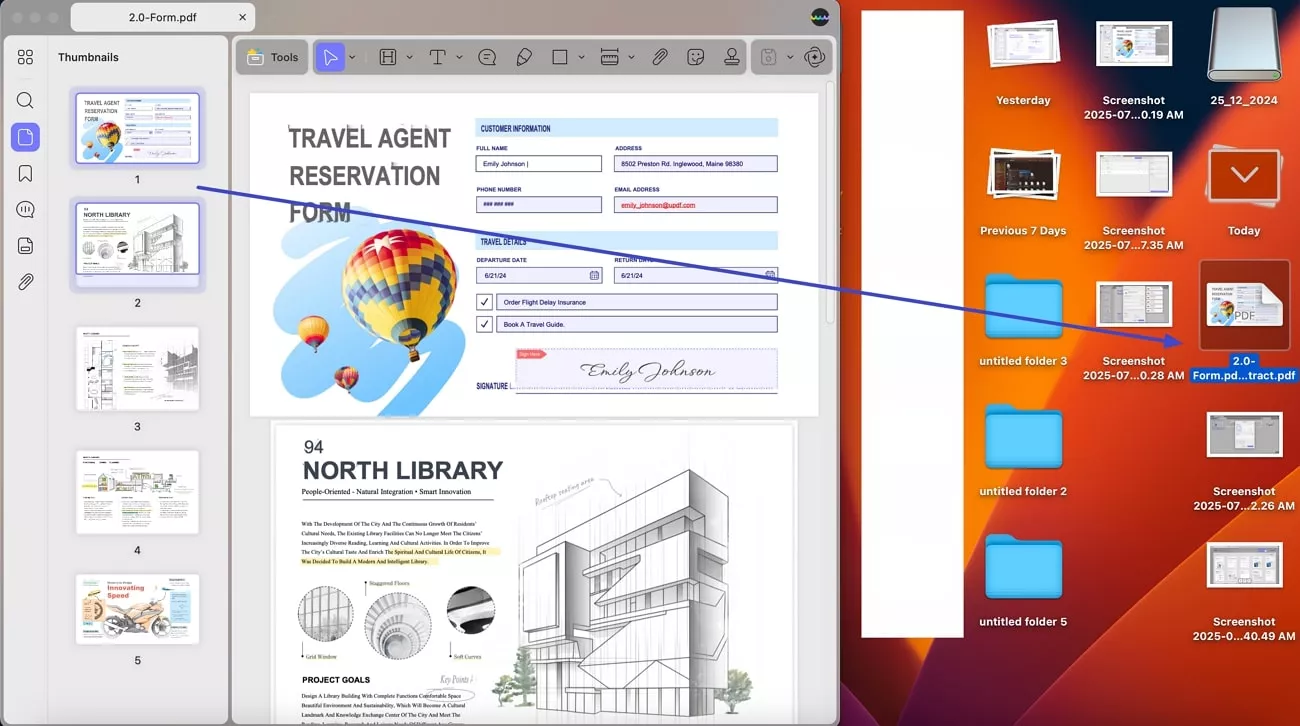
- File Compression: Now, I can easily turn large files into smaller-sized documents to store more files and data. With quick compression in UPDF, I was able to save my Mac's space and avoid lag issues.
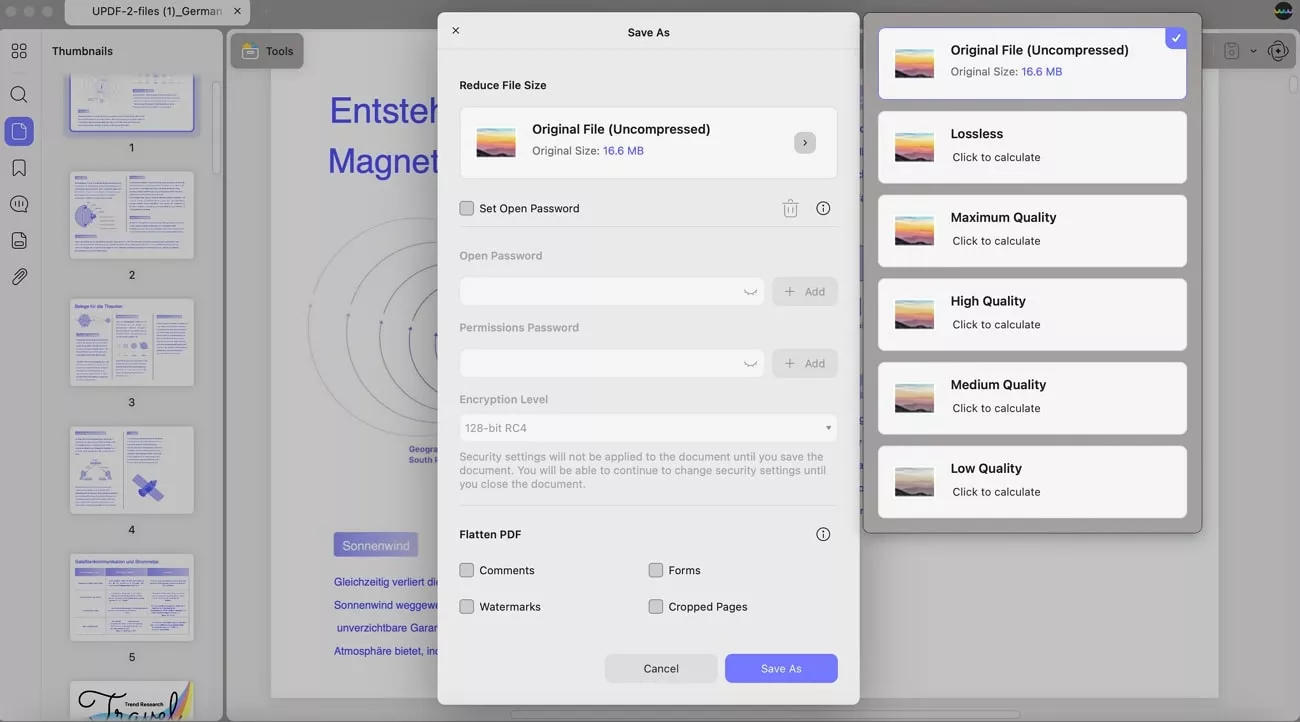
Conclusion
In conclusion, the why is my Mac so slow issue can be resolved by following the best 7 solutions. However, this problem can affect documents and important files just like it did mine, so I recommend using UPDF for Mac. It is reliable, lightweight, and filled with powerful editing and annotating features that don't take up any Mac space.
Windows • macOS • iOS • Android 100% secure
 UPDF
UPDF
 UPDF for Windows
UPDF for Windows UPDF for Mac
UPDF for Mac UPDF for iPhone/iPad
UPDF for iPhone/iPad UPDF for Android
UPDF for Android UPDF AI Online
UPDF AI Online UPDF Sign
UPDF Sign Edit PDF
Edit PDF Annotate PDF
Annotate PDF Create PDF
Create PDF PDF Form
PDF Form Edit links
Edit links Convert PDF
Convert PDF OCR
OCR PDF to Word
PDF to Word PDF to Image
PDF to Image PDF to Excel
PDF to Excel Organize PDF
Organize PDF Merge PDF
Merge PDF Split PDF
Split PDF Crop PDF
Crop PDF Rotate PDF
Rotate PDF Protect PDF
Protect PDF Sign PDF
Sign PDF Redact PDF
Redact PDF Sanitize PDF
Sanitize PDF Remove Security
Remove Security Read PDF
Read PDF UPDF Cloud
UPDF Cloud Compress PDF
Compress PDF Print PDF
Print PDF Batch Process
Batch Process About UPDF AI
About UPDF AI UPDF AI Solutions
UPDF AI Solutions AI User Guide
AI User Guide FAQ about UPDF AI
FAQ about UPDF AI Summarize PDF
Summarize PDF Translate PDF
Translate PDF Chat with PDF
Chat with PDF Chat with AI
Chat with AI Chat with image
Chat with image PDF to Mind Map
PDF to Mind Map Explain PDF
Explain PDF Scholar Research
Scholar Research Paper Search
Paper Search AI Proofreader
AI Proofreader AI Writer
AI Writer AI Homework Helper
AI Homework Helper AI Quiz Generator
AI Quiz Generator AI Math Solver
AI Math Solver PDF to Word
PDF to Word PDF to Excel
PDF to Excel PDF to PowerPoint
PDF to PowerPoint User Guide
User Guide UPDF Tricks
UPDF Tricks FAQs
FAQs UPDF Reviews
UPDF Reviews Download Center
Download Center Blog
Blog Newsroom
Newsroom Tech Spec
Tech Spec Updates
Updates UPDF vs. Adobe Acrobat
UPDF vs. Adobe Acrobat UPDF vs. Foxit
UPDF vs. Foxit UPDF vs. PDF Expert
UPDF vs. PDF Expert

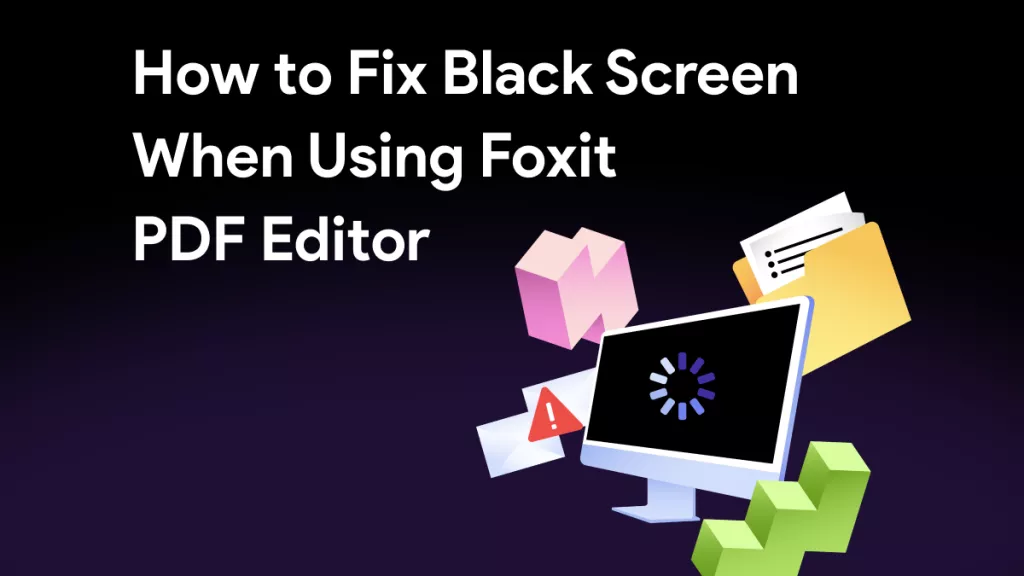
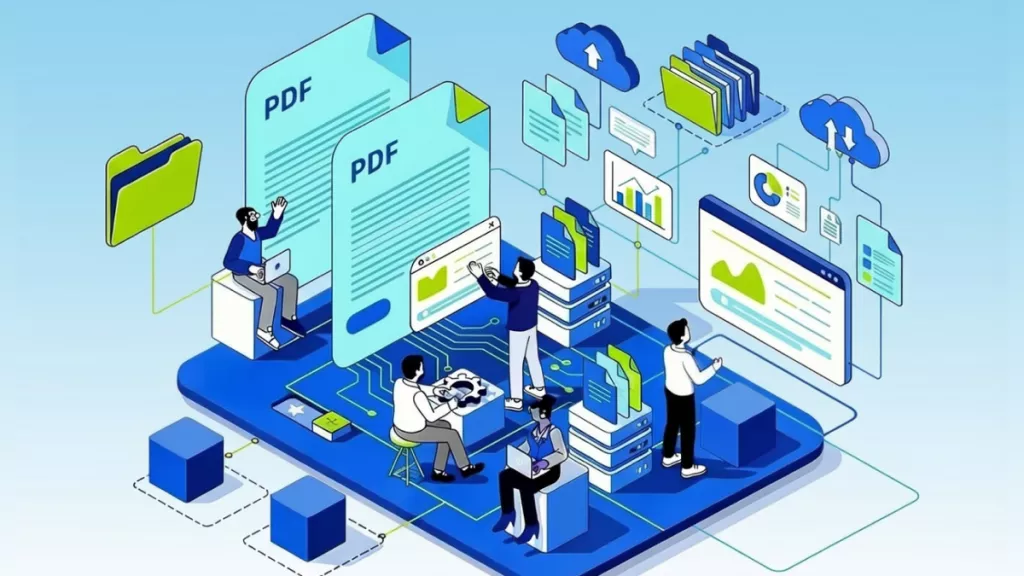



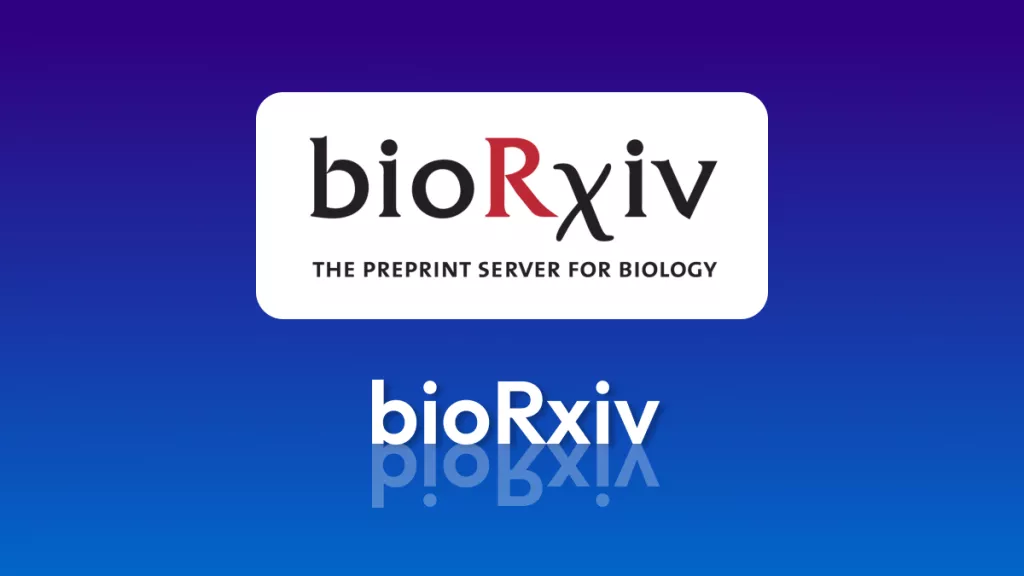

 Lizzy Lozano
Lizzy Lozano 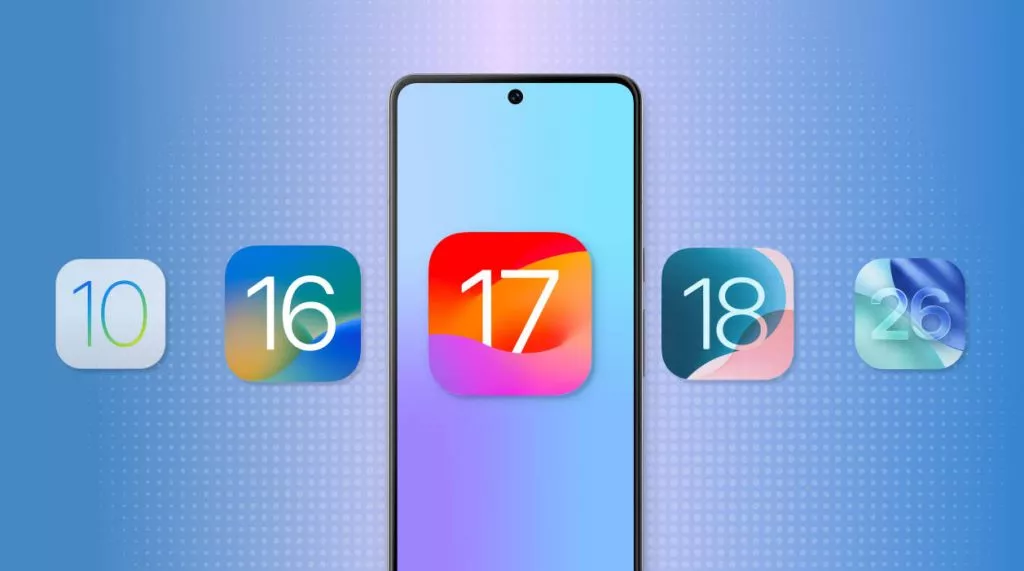
 Enola Davis
Enola Davis 


 Enola Miller
Enola Miller